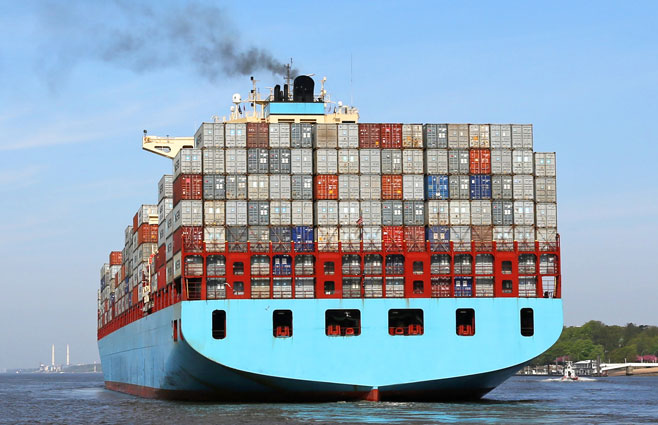
90% of the world’s trade is carried by ship and yet shipping remains one of the dirtiest forms of transport, accounting for around 3% of the world’s greenhouse gases. To put that in context, if shipping were a country, it would be the sixth largest polluter in the world. By 2050, the International Maritime Organization (IMO) projects that the share of emissions from shipping will grow by as much as 250% if vessels continue to burn fossil fuels. This could make the sector responsible for as much as 17% of global carbon dioxide emissions in 2050 as other industries clean up their act by reducing their carbon outputs. There is growing awareness that shipping will have to embrace radical change to help the world’s governments to meet their climate targets. The UN has set a goal of limiting global warming to 1.5°c above pre-industrial levels by 2050 if we are to avoid catastrophic consequences. The most positive forecasters believe that human ingenuity is the key factor that will deliver the solutions needed to protect our planet from disaster.
Engineers all around the world are joining the race to find solutions. In Belgium, Compagnie Maritime Belge (CMB) is piloting a zero-carbon vessel – the “Hydroville”. The company’s CEO, Alexander Saverys sees such vessels as the only zero emission solution in the long run. The difficulty is that time is not on our side. And this is compounded by the fact that long lead-times for ship manufacturing mean that decisions are being made today about ships whose impacts will play out over the next thirty years. University College London’s shipping and energy expert, Dr Tristan Smith told CNN that zero emission vessels need to be joining the fleet by 2030 if we are to stand a chance of meeting the IMO targets.
We wrote last year about efforts to reduce the environmental impact of shipping but running ships more slowly and retro-installing scrubbers is only a short-term fix for current IMO emissions regulations. Long term success will demand new ships, new engines and new fuels. While many shipping companies are burying their heads in the sand, the more progressive are taking the challenge head-on. Foremost among these is Maersk, which has backed their pledge to achieve carbon neutral status by 2050 with a $1 billion investment in energy efficient technology. The company's head of sustainability, John Kornerup, stated that they intend to reduce emissions by 60%. "If we want to be ready in 10 years, we need to get started now". Maersk is trialing a range of low-carbon fuels and developing electric batteries. Kornerup is clear that decarbonizing shipping will require "a completely new propulsion technology". But even Maersk, with its vast financial resources, says it cannot make zero-carbon ships a reality without widespread industry collaboration.
Of course, cleaner ships are not the only way that the global supply chain can clean up its act. Cargo damage and events such as ship fires have a devastating effect on the environment. When cargo is damaged or destroyed, the loss is not just financial but also environmental. The energy and resources used to manufacture the products are also lost and the environmental cost of shipping those goods will also be doubled when replacements are dispatched. The environmental risks rise exponentially with hazardous materials that can destroy surrounding cargos, entire ships and potentially enter fragile ecosystems with devastating effects.
Fortunately, carefully engineered cargo protection solutions are now highly advanced. Cordstrap has pioneered the world’s most innovative and effective cargo protection solutions and we work closely with our customers to ensure the safety of their cargo, developing precisely engineered solutions to massively reduce the risk of damage in transit from both physical forces and moisture. We have also recently launched Cordstrap Cargo Monitoring, a world-leading data collection and analysis system that allows us to predict global risks more effectively and assess the impact of climate change along specific supply routes.
Our global supply and support network puts Cordstrap in a unique position to help you standardize best practice throughout your supply chain and our solutions have been engineered to reduce the costs of application reducing time and labor spent loading shipments.
Cordstrap’s work has not gone unnoticed. Our solutions are being deployed by many leading global businesses and our work has won the approval of the world’s largest and most influential regulators and insurers including DNV, the IMO, Mariterm AB and the Association of American Railroads. To find out how better engineered cargo protection could improve your environmental KPIs as well as your financial ones, get in touch with our experts.
For expert advice on cargo securing solutions contact us now
Contact now